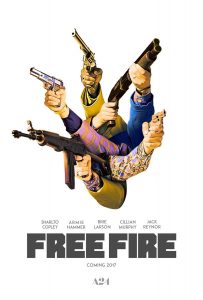After making what many consider to be the best film of 2011 with his masterpiece A Separation and competing for the Palme d’Or with The Past, Asghar Farhadi makes a very welcome return to our screens with The Salesman.
Emad (Shahab Hosseini), a teacher and theatre actor living with his wife Rana (Taraneh Alidoosti) in Tehran, is forced to move after his tower becomes too close to a building site which has upset the apartment block’s foundations. In the opening scene we watch as the digger slowly scoops earth out of the site; as this happens the window cracks. This small, seemingly innocuous fracture is the first of many bad signs, as this quietly sinister piece of symbolism will eventually lead to tragedy.
Their new place is recommended to them by a fellow actor working with them on a production of Arthur Miller’s Death of a Salesman, from which the film gets its name. This apartment hides a dangerous secret and the move leads to a horrible accident in which the content and happy lives of this couple are shattered.
The Salesman is a masterful film which earned itself the Oscar for Best Foreign Language Film at this year’s Academy Awards, and if you’ve been keeping up with the news you may have seen the headlines concerning this. The travel ban implemented by the half human, half cheeto demagogue who we have to now call the President of the United States, meant that Farhadi didn’t attend out of protest because, as a citizen of Iran, he cannot gain entry into the United States without special permission. It seems insane to be writing that sentence in 2017 but hey, that’s the world we’re living in now folks.*
It’s a deep shame that this has happened. Firstly because the ban itself is a truly nasty piece of openly racist realpolitik but more importantly because it threatens to overshadow the dialogue about the film itself, which is disappointing because Farhadi has made a brilliant film.
Rarely has a filmmaker had such a grasp of neorealist cinema, and Farhadi is still at the top of his game. The brilliant performances of Hosseini and Alidoosti are just part of the experience; the way in which the performances are captured from the photography to the pace of the film is incredible.
The way the lives of these ordinary people are captured showcases how great Farhadi’s handling of his craft is. Without wishing to spoil anything, the incident which kickstarts the plot leaves the two central characters at polar opposite opinions on how to handle the situation and its aftermath. Just like in A Separation, this dynamic is where Farhadi deploys his masterstroke – both sides are totally understandable. The viewer can do nothing but sit there as the conflicting emotions and sympathies stack on top of each other.
There are so many soft, quiet moments that say more than any amount of expositional dialogue could. An expression between two people or a barbed comment has more weight and impact than some entire films do. It’s a terribly sad film only because human relationships and life’s difficulties often are terribly sad. There’s a truth in this kind of filmmaking which only the great artists of this medium can tap into.
As with many other pieces of realist cinema, The Salesman isn’t afraid of social context. The theocracy of Iran is a man’s world – a society where cats roam the streets and it’s improper for men to shake women’s hands. State censorship of the arts has reinforced it with some of the best visual and subtle story telling in the world, and Farhadi is now indisputably the greatest of this generation of Iranian filmmakers.
Roger Ebert had a great quote when he called cinema ‘a machine to generate empathy’. There is no more important or impressive function of filmmaking than when it makes you understand the actions and desires of your fellow man, and this Iranian master can do it better than anyone else.
Asghar Farhadi is not only Iran’s greatest filmmaker but one of the best filmmakers currently on the international circuit. Making a follow up to A Separation and The Past that retains the same depth, complexity and unadulterated quality is an astonishing feat, not only of a director at the top of his game but of an artist whose work should be seen and appreciated by as many people as possible.
*Anousheh Ansari (who it turns out was the first Iranian to go into space!) read the following statement from Farhadi at the ceremony: “ My absence is out of respect for the people of my country, and those of the other six nations who have been disrespected by the inhumane law that bans entry of immigrants to the US.”
The Salesman is in cinemas from 9th March through Hi Gloss Entertainment.





